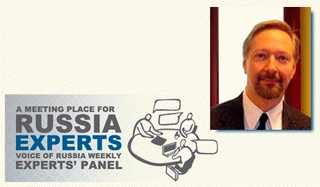First published on June 7, 2013 as part of the Voice of Russia's Expert's Panel. I am appending a related contribution I made on September 25, 2012 to the New York Times' Room for Debate
Yeltsin's 1996 law "On Non-commercial Organizations" (which, by the way, already provides for future legislation to regulate "foreign agents") was certainly due for an overhaul. While the amendments passed last November are far from perfect, they do pursue a valid social objective -- to increase the transparency of foreign funding for NGOs that are engaged in "political activities aimed at influencing the adoption of government decisions, at changing their policies, and the shaping of public opinion to these ends" (Article 2, point 6, as amended).
One can certainly make the case that this formulation is too vague, but that is an issue for Russian courts to decide. Those who suggest that Russian courts pliantly serve government should update their information, since in reality Russian courts have ruled against the government and in favor of plaintiffs in over 70% of the civil cases brought before them in the past eight years (see Mikhail Barshchevsky, "Sudya po vsemu: Vyacheslav Lebedev -- Ne grazhdanin, a chinovnik dolzhen dokazat; v sude svoyu pravotu," Rossiiskaya gazeta, February 19, 2013; and Yuri Kolesov, "The Shadow of Judgement: Russian Citizens Distrust The Judicial System," Vremya novostei, October 19, 2004, cited in Johnson's Russia List #8416).
The proper purpose of such laws -- to increase the public accountability of political actors -- is recognized in every Western country. It is therefore entirely appropriate for Russia have something similar in place. This does not deviate from Western practices; it reinforces Russia's adherence to them.
Setting aside, for a moment, the self-serving rhetoric of the few organizations actually affected by this law, anyone truly concerned about the public interest must surely be troubled by their concerted efforts to evade such accountability. In the long run, this can only undermine respect for the law, harm the domestic standing of Russian NGOs, and weaken the independence of Russian civil society.
Local Groups Must Not Rely on the U.S.While the focus of media attention has been on the groups that receive foreign funding, it ought to be on whether such funding is still necessary. The evidence suggests that foreign democracy assistance has never been all that effective, and has probably outlived its usefulness in Russia.
Even as human rights nongovernmental organizations received most of the funding (U.S. Agency for International Development spending on democracy and governance programs grew from 41 percent of its Russian budget in 2004 to 72 percent in 2007), there is scant evidence that this promotes a viable civil society. Analysts have observed that the typical N.G.O. rarely survives beyond the initial grant period, and throughout Eastern Europe and the former Soviet republics, direct foreign assistance had led to weaker ties between civic institutions and society and greater dependence on foreign support.
In 2006 the Russian government moved to change this dynamic. That year it held the first national grant competition for N.G.O. projects and distributed $15 million. By 2011 more than $350 million annually was being disbursed for N.G.O. projects in fields as varied as the environment, historical and cultural preservation, welfare assistance, and human rights. This amount now dwarfs total U.S. government assistance to Russia.
Criticism of the government's efforts has been widespread, but generally off the mark. In a careful review of N.G.O. studies, Debra Javeline and Sarah Lindemann-Komarova show that there is little evidence of co-optation by the government -- even anti-government N.G.O.s, like the Moscow Helsinki Group and the Committee of Soldier's Mothers, can receive funding. They also found little substance to claims that the government limits what recipients can do with the money or that new legislation has intensified difficulties for N.G.O.s. Indeed, only 2.9 percent of N.G.O. leaders say that pressure from the government is the primary problem for their organization.
Another common claim is that foreign governments must support civil society because Russians will not do so. This too is misleading. In 2010 private charity totaled over $3 billion in Russia, with the largest percentage (over 15 percent) going to environmental projects. But while more than half the population gave financial help to nonrelatives, only 3 percent did so through government organizations or N.G.O.s.
One major obstacle is the feeling that such organizations already get plenty of money from abroad. But should an organization's fortunes change, people are quick to respond. Last year, when the election monitoring organization Golos came under attack for accepting foreign funding, it turned into a financial boon for the organization. Individual donations rose so dramatically that the organization said it was contemplating giving up foreign funding entirely.
This is exactly what should happen. Civil society can flourish only if it is domestically oriented, locally funded and motivated by patriotic sentiments. Dependence on foreign funding undermines each of these objectives. Even worse, it isolates democracy advocates from their most important constituency, the citizens to whom they should be appealing for support.
That is why the shift from foreign to domestic assistance is a positive development. It removes an unnecessary irritant in U.S.-Russian relations, and shifts the political debate from the narrow context of what the United States should do to promote democracy in Russia, to where it properly belongs -- to the Russians themselves.






